
Book Now to Experience
Acne Treatment
1 Minute Self-Registration
Date should not be before minimal date
Author: Leila Tan|Updated: 23 July 2024
Hyperpigmentation acne can be a frustrating skin concern to deal with. If you're looking for fast and effective ways to address it, read on to discover some tips and treatments that can help reduce the appearance of hyperpigmentation caused by acne.

1
What is hyperpigmentation acne?
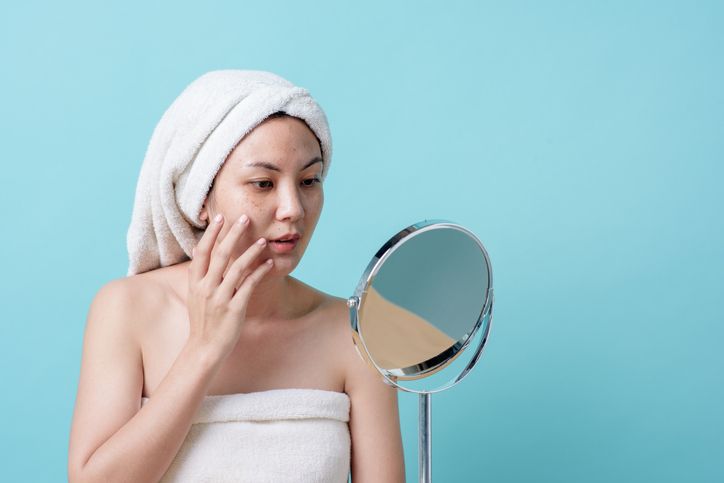
The word "hyperpigmentation" is made up of the words "hyper," which implies excessive or over, and "pigmentation," which refers to the color of skin tissue. An excessive pigment in the skin is what is meant by hyperpigmentation.
Acne hyperpigmentation is when a dark area develops on the skin after a zit has cleared up. Inflammation causes the skin to become hyperpigmented after acne. Acne, blemishes, pimples, and other skin diseases like eczema can also cause inflammation. All skin types may develop these black spots, but those with darker skin tones are more likely to do so. In contrast to other types of acne, hyperpigmentation acne presents as a dark spot or patch on the skin rather than a raised pimple.

2
What causes hyperpigmentation acne
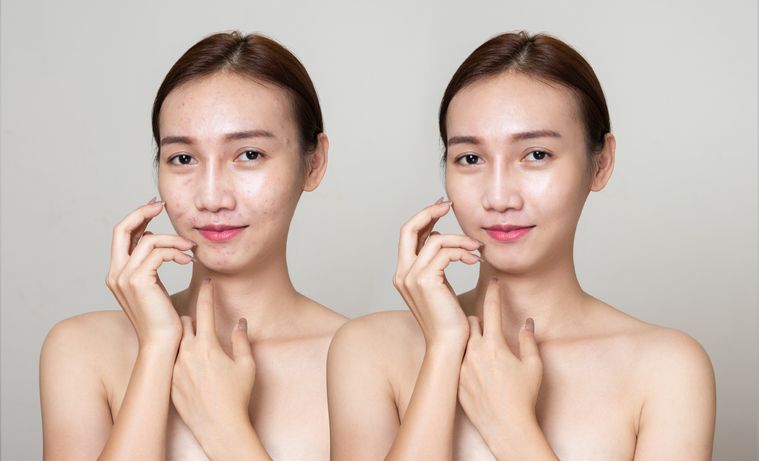
Because the skin produces extra melanin when a pimple is active, dark spots may develop on the skin after it heals. The pigment melanin is what gives skin its color and the excessive release of Melanin can give the skin a tan, brown, or dark brown appearance when it accumulates in a single area or as a patch on the surface of the body. The dermis is where some acne lesions with hyperpigmentation can develop. Deeper lesions will have a blue-gray appearance and may become permanent.
What causes varied levels of hyperpigmentation is unknown to medical professionals. More research is required to ascertain the influences on this factor after skin inflammation, melanin overproduction may take place. According to research, several immunological and inflammatory variables can increase melanin synthesis.
As was previously said, melanocytes generate melanin, which in turn produces pigment. The activation of melanocytes and the release of melanin increase with the length of time it takes for a wound to heal. Acne marks that are hyperpigmented develop in this manner.
Picking at zits is one of the main causes of post-inflammatory hyperpigmentation associated with acne. Whiteheads or blackheads do not heal. Instead, the oil and dead skin are removed, and the pore soon goes back to normal. On the other hand, cysts and pimples need time to cure. Hyperpigmentation enters the picture at this point. Avoiding acne in the first place is the best way to manage hyperpigmentation that results from acne.

3
Acne Scars Vs Hyperpigmentation
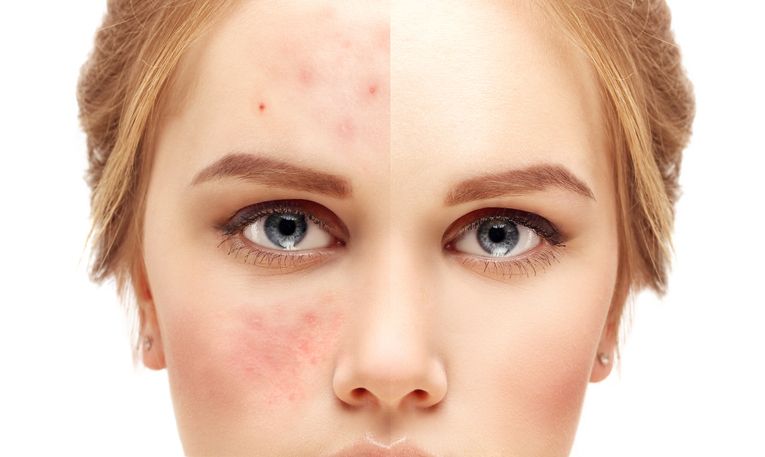
The terms "post-acne hyperpigmentation" and "acne scarring" are frequently used interchangeably. Every change to the skin after a spot is called an acne scar. Although acne scarring and post-acne hyperpigmentation can both develop after a breakout, they are fundamentally distinct from one another.
Hyperpigmentation is unrelated to acne scars, despite the fact that they may appear to be connected. Post-inflammatory hyperpigmentation (PIH) spots are flat skin marks, but acne scars can be elevated or pitted. Focusing on acne control is the initial step in treating both acne scars and Post-inflammatory hyperpigmentation .
As the skin's texture is physically altered, acne scars develop. Post-acne hyperpigmentation, in contrast to acne scarring, is merely a type of skin pigmentation and does not affect the texture of the skin.

4
Treatment to treat hyperpigmentation acne
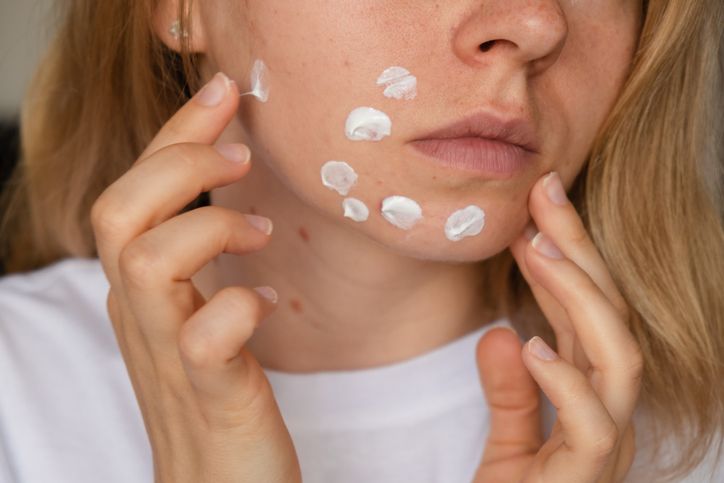
Acne Treatment - New Beauty
The Acne Treatment is a new treatment from New Beauty for skin that is prone to breakouts. First, the dual spiral suction plus drainage technology exfoliates dead skin cells and clears clogged pores at the same time, reducing acne infection and inflammation. The face is then treated with a moisturizing serum to control sebum output and encourage collagen synthesis. Future breakouts of acne are less likely if there is insufficient oil. Acne, blemishes, blackheads, whiteheads, pockmarks, enlarged pores, dry skin, acne scars, and dull skin tone are all goals of the acne treatment. Seize the opportunity to revive bright skin and increase your self-esteem!
What can you get from this treatment
Eliminate Dead Skin Cells: Excess dead skin cells are removed using dual spiral suction and drainage technology to keep pores from becoming clogged in the future.
Hydrating Essence: A medical-grade moisturizing serum may penetrate the deepest layers of the skin to nourish and hydrate the skin tissues while also soothing acne-prone skin. Moreover, it soothes the sebaceous glands to stop overproduction of oil.
Evident Results: You will have less acne breakouts, acne scarring, and various types of acne as the treatment goes on. See as your skin becomes healthier, more moisturized, and lighter with less of an oily sheen!
Non-invasive Treatment: The acne treatment is non-invasive, so there is no need for oral antibiotics, surgery, incisions, injections, or acne medication. Most persons with moderate to severe acne, according to our in-house beauticians, are candidates for this treatment.
Guidelines for this treatment
Before:
* Use sunscreen with SPF 30+ before receiving therapy. * Prior to treatment, limit your exposure to the sun. * During two weeks prior to and following the procedure, refrain from using any laser, IPL, radio frequency, or other skin care treatments on the treated region.
After:
* To continue shielding your skin from the sun, use a sunscreen with an SPF of 30 or higher. * Stop using skin care products containing AHA/BHA, exfoliants, and whitening agents for two weeks after treatment to prevent skin sensitivity. * Follow consistent skin care and cleaning habits. Choose skincare products with straightforward and gentle ingredients. Do not scrub your face vigorously.
How does this treatment work?
Step 1: The consultant will outline the procedure's steps and theoretical underpinnings. The beauty therapist then performs a patch test to make sure the probe hasn't caused any irritation.
Step 2: The hoover microdermabrasion and deep cleaning process is started by the twin spiral suction/drainage probe. Exfoliation is used to remove dead skin cells, oil, and grime that have been trapped in the pores and on the surface of the skin. The acne inflammation and infection should gradually subside if the pollutants are removed.
Step 3: To balance the water-to-oil ratio, calm the oil glands from future overproduction of oil, and promote collagen growth, the moisturizing serum is injected into the unclogged skin. This results in treating acne, fewer new outbreaks, and a finer complexion for the skin.

Book Now to Experience
Acne Treatment
1 Minute Self-Registration
Date should not be before minimal date

5
Sunscreen
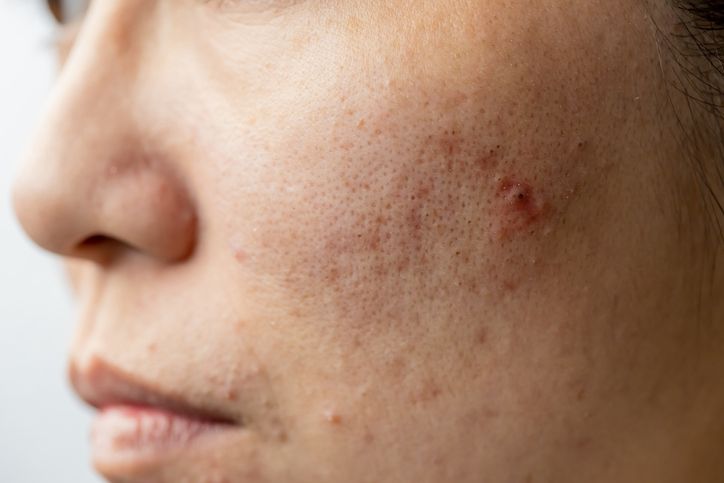
A few acne hyperpigmentation remedies can help with the pigmentation and sun protection is one of the most effective. Protecting your skin from the sun and treating hyperpigmentation go hand in hand. Pigmentation might worsen as a result of sun exposure. In order to repair it, you must safeguard your skin. A physical sunscreen with an SPF of 20 or higher is one of the best treatments for acne hyperpigmentation.

6
Chemical Peels
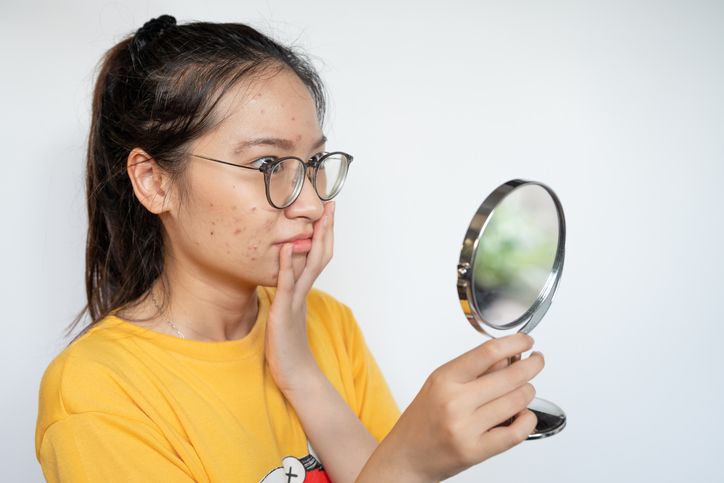
Chemical peels are exfoliating procedures that assist in removing dead and discolored skin cells from the epidermis. Your skin will reflect light more effectively and appear less drab as a result, giving off a distinct glow. There are a lot of at-home peels you can buy as well but because chemical peels can be severe you should only purchase one after speaking with your dermatologist. Chemical peels help to rejuvenate the skin's surface and lessen the severity of pigmentation. Peels take three to six sessions separated by three to four weeks, just like other skin procedures do.

7
Vitamin C
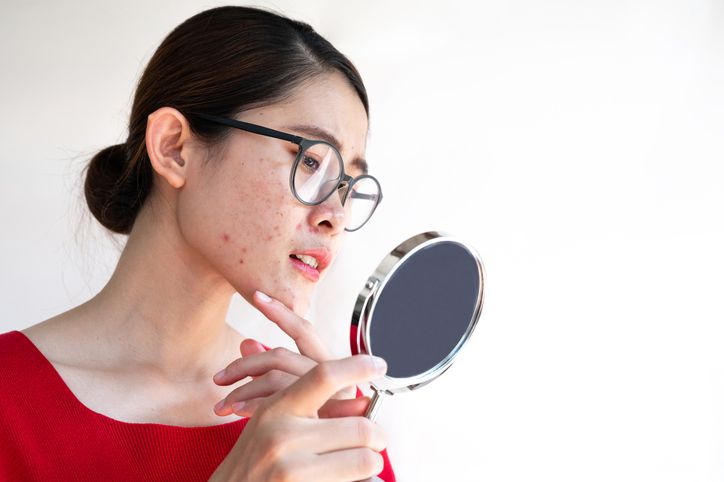
Vitamin C ought to be a major component of your anti-hyperpigmentation skincare regimen. It has countless advantages, including rejuvenating and whitening the skin while promoting collagen production. Vitamin C helps break up and brighten pigmentation lesions that you already have while also preventing the development of new dark lesions.

8
Microneedling
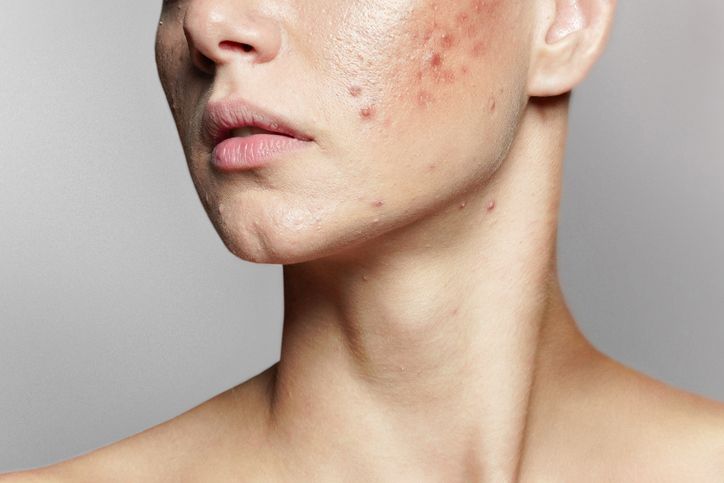
A stainless steel roller with numerous small spokes is used in the microneedling procedure to inflict a succession of microscopic wounds on your skin. In order to remodel the skin, this makes your skin create fresh, healthy collagen and elastin.
It is simpler to inject chemicals into your skin that lighten pigmentation when the skin barrier is compromised. Usually, a suitable topical cream should be used in conjunction with micro-needling.

Book Now to Experience
Acne Treatment
1 Minute Self-Registration
Date should not be before minimal date

9
How can you prevent future hyperpigmentation acne
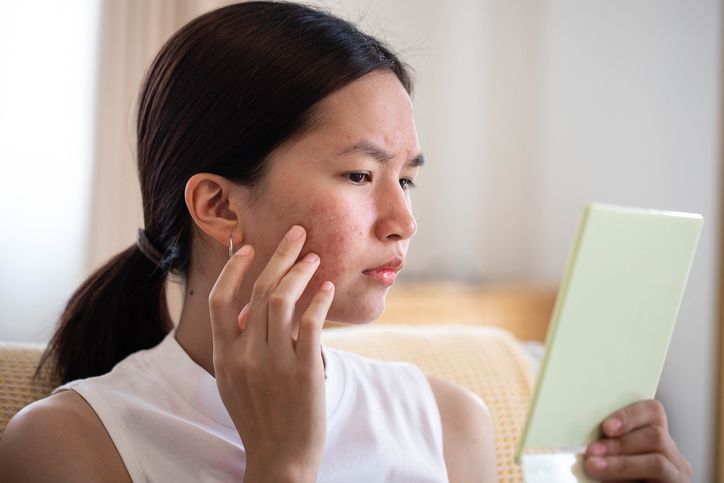
Frequently apply anti-inflammatory skincare
The healing process is essential. Yet, due to conditions like acne, it may occasionally be used when it is not necessary. Hyperpigmentation caused by chronic inflammation can wreak havoc on the skin. The best strategy to deal with acne-related hyperpigmentation is to include anti-inflammatory skincare products in your regular regimen.
Early acne treatment
According to numerous studies, treating acne in its early stages can stop it from getting worse. If treatment is started while the condition is moderate to severe, pigmentation spots are more likely to appear.
Be kind to your skin.
Acne and pigmentation cannot be removed by scrubbing, unfortunately. The worse it is for your skin, the harsher you are. Scrubbing can exacerbate acne, which is difficult to believe. According to science, acne can be cleared up with moderate skincare.
Don't Cover Marks With Thick Makeup
While makeup can effectively conceal blemishes, it also encourages the development of new ones. Makeup clogs pores in a similar way to cocoa butter. Make sure to choose lightweight or mineral makeup. Your skincare products may contribute to breakouts. Shea butter and cocoa butter are examples of products with high oil content that can clog your pores and cause acne.

10
How Long Until Acne Hyperpigmentation Dissipates?
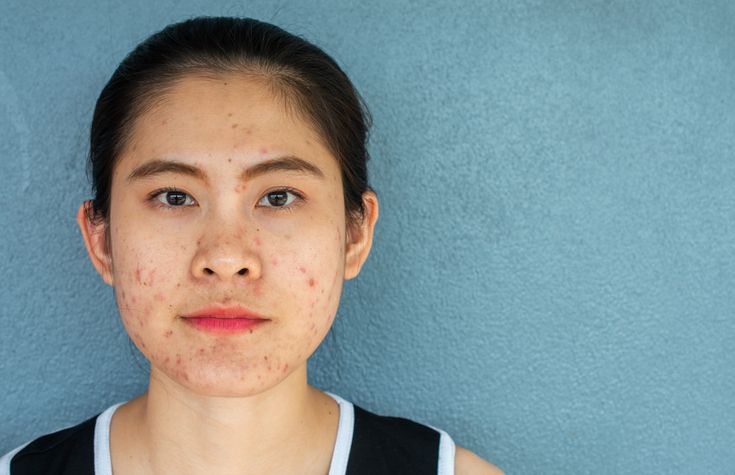
The depth and severity of the trauma determine how long it takes to fade. While some spots could go within a month, others could take up to a year. Your skin undergoes daily changes. You produce new skin cells every day which force the old ones out. Because this process typically lasts 30 days depending on how severe it is, acne-induced hyperpigmentation may go away in as little as one month. Consider the post-inflammatory hyperpigmentation brought on by acne as a wound that eventually scars to get an idea of recovery time.

11
When to see a doctor
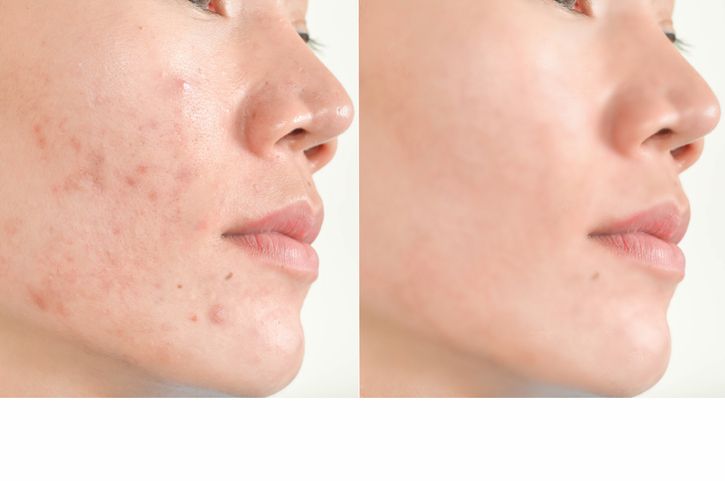
Acne-related hyperpigmentation is not hazardous. For cosmetic purposes, some people could seek medical attention for hyperpigmentation acne, nevertheless. Although hyperpigmentation acne has no negative consequences on a person's physical health, if they don't like how it looks, they might. Consumers should be warned that some OTC products can contain pollutants or substances that don't lighten the skin. To determine whether a product is likely to be effective, it is crucial to review the ingredient list. Realistic expectations for healing can be helped by healthcare experts. To hasten the fading even more, they can also suggest medical therapy combinations.

12
Conclusion
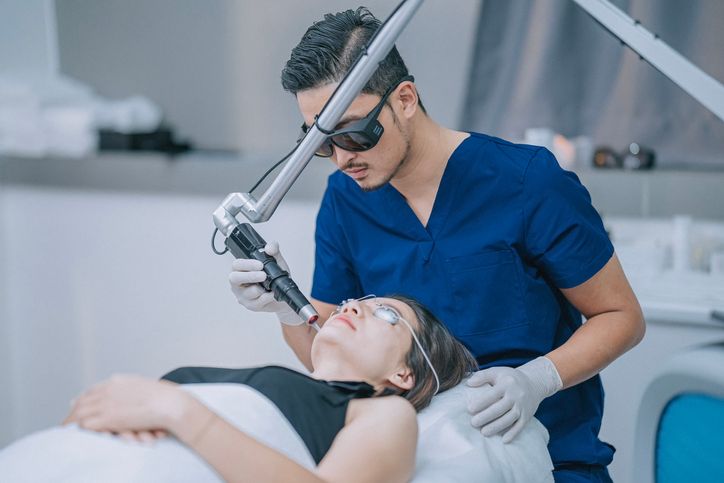
Darker skinned individuals may get dark spots more frequently, yet they can develop on any type of skin. Acne with hyperpigmentation is not dangerous, but it can have serious psychological consequences. You can get assistance from your dermatologist in determining the best course of action for your skin. There are many options available to treat acne scars. You only need a little bit of patience. Setting the stage will help you achieve the best results. Whichever treatment you decide to use, there are a few things to keep in mind to help get your skin ready.
FAQ
Can I use the same treatment to remove hyperpigmentation around the mouth?
It's not always the same treatment. One of the following procedures might be suggested by a dermatologist if you're looking for a permanent solution to skin discoloration around your mouth: hydroquinone or retinoids of prescription strength.
What worsens acne hyperpigmentation?
A few elements, such as dry weather, low temperatures, and reduced humidity, can exacerbate hyperpigmentation. These conditions increase skin disorders including acne, psoriasis, and eczema and leave behind enduring black spots. Acne with hyperpigmentation can also be caused by picking at the pimples and over-washing the skin.
How to know if a hyperpigmentation is fading?
Fading can take time after the root of the dark spots or patches is identified and halted. Usually, an area that is a couple of shades darker than your normal skin tone will go away in 6 to 12 months. But it may take years for the color to fade if it is deeply ingrained in your flesh.

Book Now to Experience
Acne Treatment
1 Minute Self-Registration
Date should not be before minimal date
Recommended Articles
COPYRIGHT© NEW BEAUTY MANAGEMENT LIMITED 2026. ALL RIGHT RESERVED.




